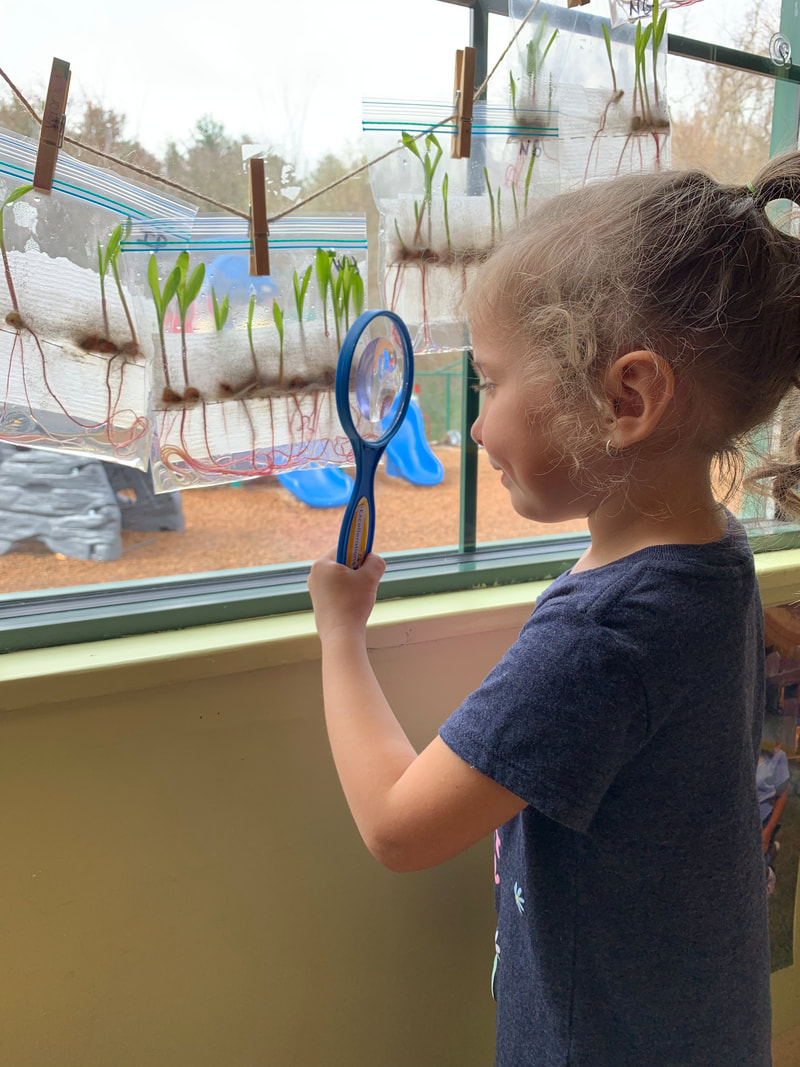Preschool CurriculumThe preschool curriculum at The Children’s Village focuses on children’s continuing social and emotional, cognitive, and physical development in the context of a safe and fun learning environment. Preschoolers have many opportunities for cooperative play, with teachers modeling and guiding them in respecting others and forming friendships. Mixing individual with group activities lets children set their own goals, take risks, and feel good about their accomplishments.
A daily routine in the classroom allows children to better organize their day and know what is expected of them. Following a series of steps or directions lets them learn that they can control outcomes. They apply this knowledge in working together to find solutions to problems—whether how to build a taller tower or how to determine whose turn is next. We guide them in learning by trial, error, compromise, and learning from another’s perspective. Children are encouraged to explore learning areas and topics of discussion that interest them, which helps them develop the ability to stay focused. Activities are both fun and educational, promoting academic readiness across subject areas. Science activities include a sand/water table for experimentation, blocks, and manipulatives to help children learn concepts such as one-to-one correspondence, sorting, classifying, and categorizing. Math and science are also emphasized in discussions of weather, the environment, the calendar, and many daily activities. Language learning is an important part of the preschool curriculum. Children learn to listen and to respond during Circle Time, at various learning centers, and during indoor and outdoor play. Our print-rich environment and early writing activities encourage letter recognition, invented spelling, and storytelling. |
Creating a family tree and discussing family and cultural traditions gives children a foundation in social studies, while our Art Center, Dramatic Play Center, and daily music time encourage creativity while teaching students about different genres and mediums.
Ongoing physical development is also important for children in this age group. We offer a variety of equipment (e.g., balls, climbing equipment, open play areas) to help children increasingly develop gross motor skills. Manipulative toys, art and writing tools, and games allow them to work on fine motor skills. Eating and clean-up time offer opportunities for learning about health and nutrition as well as to become increasingly self-sufficient. |

